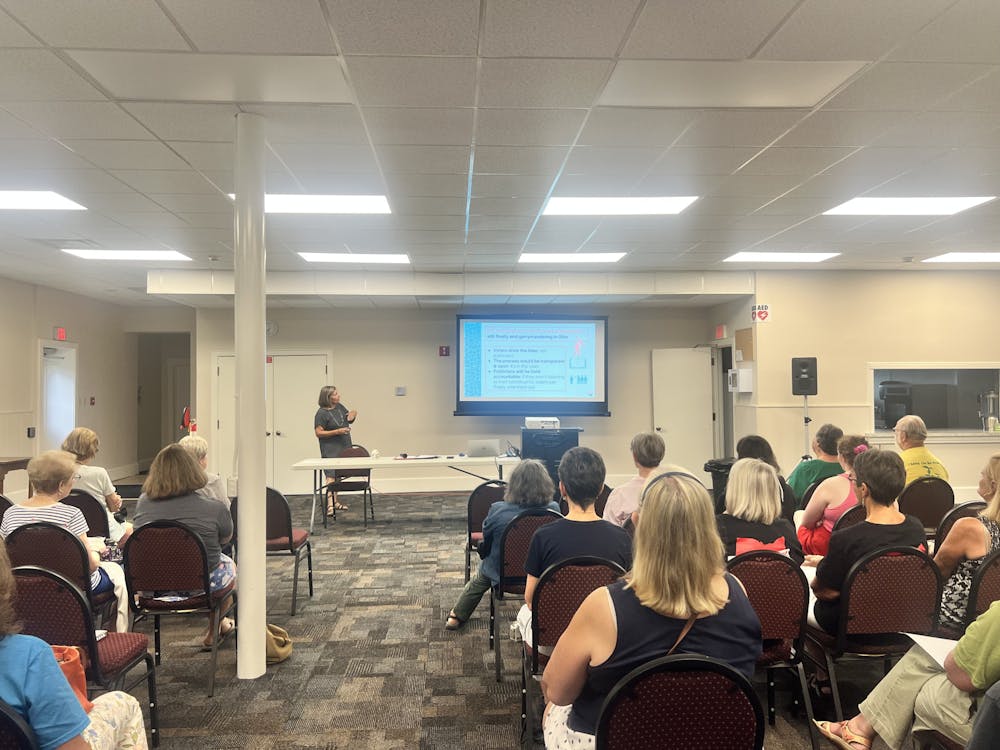By Abigail Kelly, Senior Staff Writer
Resident Assistants (RAs) have many responsibilities, from being on duty certain nights of the week, to mediating roommate conflicts and planning hall activities. And most would think their pay reflects the work they perform. However, for some RAs, the job is no more financially rewarding than any traditional clock-in, clock-out position on campus.
Senior Zach LeCompte resigned from his RA position in August because he felt like he wasn't compensated well enough over the school year. He was an RA for one semester in Havighurst, a year in Etheridge and a summer in McFarland.
"When I received my fall semester bill from the bursar this summer, I realized that I could not afford to be an RA," LeCompte said. "When I looked further into the situation, I realized that it would cost me more to live on campus and work as an RA than I was being paid for the entire year."
RAs get paid based on experience. Over a 10-month period, first-year RAs get paid $8,864, second-years $9,164 and third-years $9,464.
However, RAs have to pay the price of a double room for the building they are living in and for the meal plan of their choice, including the assessment fee. RAs could be spending anywhere between $5,349 to $7,449 a semester, depending on their hall and meal plan.
For some of Miami's 246 RAs, the pay system is an issue, like it was for LeCompte, because the salary is not paid in a lump sum and therefore cannot be used easily toward tuition, housing or student loans.
"Being an RA would have forced me to take out a total of $7,500 in loans for the school year," LeCompte said. "When I turned in my resignation in August, I went from owing several thousand dollars to owing nothing and having to take out no loans this school year."
Although many other universities offer discounted housing and a small salary to their residents, assistant director of residence life Colleen Bunn said the process of giving students only a salary was decided a long time ago. The idea was to give the money directly to the RAs, rather than forwarding it straight to their bills, so students could choose how to spend their money.
While Miami chooses to funnel all compensation into a salary, other schools distribute RA benefits differently.
Kaylah Crepps, an RA at the University of South Carolina (USC), receives a 50 percent discount off her housing, a discount on meal plan and a stipend of $4,300. Even though she admits her salary is not much, she still likes the mix of the two.
"The salary can still cover housing, or you still have salary left over," said Crepps.
Enjoy what you're reading?
Signup for our newsletter
Miami uses a similar system to USC's for its RAs over the summer.
When LeCompte worked over the summer, his room and meal plan were covered and he received a small salary at the end of each month. But this option is only offered during the summer because such few RAs work during the break.
Still, LeCompte would prefer a similar payment process during the school year.
"I feel that system was much more fair for the RA as it benefitted me in more ways than one," he said.
Bunn said taking RAs' opinions into consideration, there has been talk about making changes in the past, like covering housing altogether or creating a flat housing fee for RAs. However, because the funds for paying RAs come from Housing, Dining, Recreation and Business Services, there are no plans for change in the future.
"We wouldn't be able to give students a very high stipend and they wouldn't be able to work anywhere on campus," Bunn said. "So they wouldn't be getting a lot of funds, but their housing would be taken care of."
She continued by saying that although she sees the issue, it's not something that can be easily altered.
"If a group of RAs came to us and said, 'We would like to look into changing this process,' we would be happy to do that. It is unfortunately not a process that we can just snap our fingers and make it all happen."
LeCompte is now living off campus paying $2000 a semester and works in ticket sales for Miami Athletics. While LeCompte enjoyed his position as an RA, he said the financial burden was too much for him to handle.
"I just wish that the university hadn't put me in the situation it did, where I had to choose between being an RA and digging myself deeper into debt, or resigning and making my financial situation after school easier."




